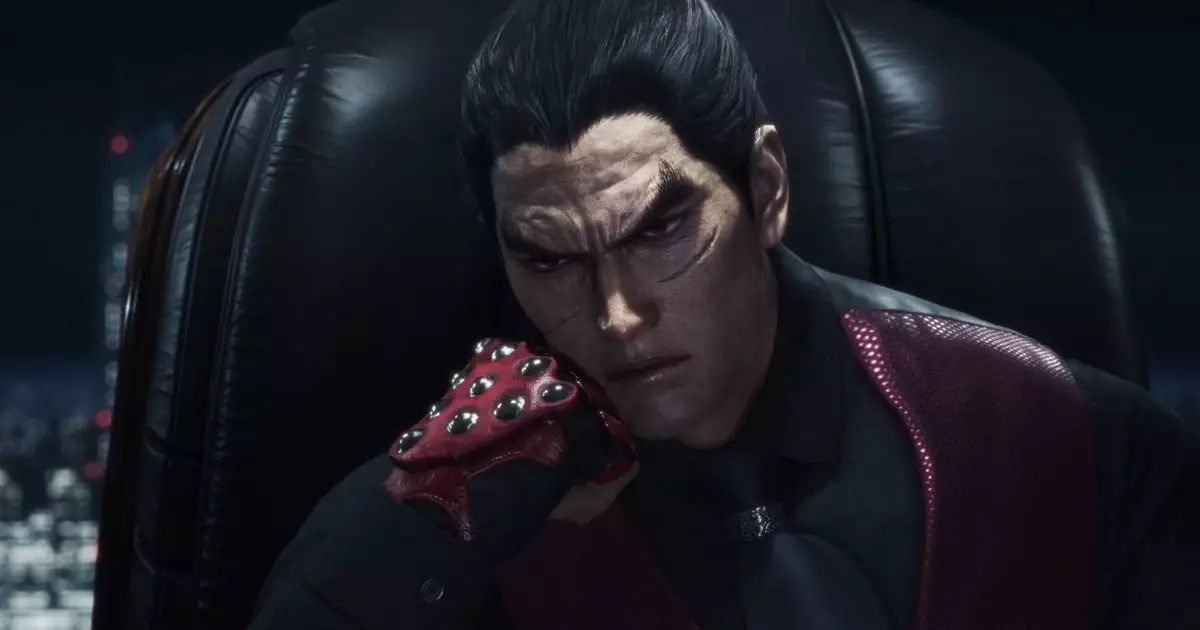In an industry renowned for its creativity and innovation, the shadows of stress loom larger than one might imagine. Game development can often resemble a pressure cooker, where deadlines loom and expectations run high, leading to extraordinary mental and physical strain. Katsuhiro Harada, the director of the iconic Tekken series, recently shared a deeply personal anecdote on social media that served as a striking reminder of the toll this pressure can exact on developers. His reflections on the release of Tekken 4 in 2001 not only expose the vulnerabilities faced by industry leaders but also highlight the broader implications of mental health within the realm of creative professions.
As he recounted, the critical reception of Tekken 4—a game that fell short of sales expectations—triggered an intense emotional response that manifested in unexpected ways. Harada experienced a rare form of stress-induced alopecia, causing significant hair loss on one side of his body. While some might dismiss this as an oddity, it underscores a profound reality: stress has the potential to wreak havoc on our bodies in ways we might never anticipate. The phenomenon of localized hair loss is often linked to autoimmune responses exacerbated by stress, shedding light on the catastrophic effects that pressure can have on our overall well-being.
The Hidden Costs of Creativity
Harada’s experience shines a spotlight on the often unrecognized costs of creativity in video game development. The pressure to innovate, combined with managing vast teams and budgets, can induce chronic stress levels that are debilitating. Harada candidly stated that not even a year had passed after the difficult release of Tekken 4 before he was forced to leave Bandai Namco due to the overwhelming anxiety he experienced. Such confessions challenge the glamor that surrounds the gaming industry and reveal the human aspect often obscured by success.
This narrative is particularly poignant in a society that often idolizes successful creators without acknowledging the sacrifices made behind the scenes. The relentless criticism Harada faced was not merely a professional stumbling block; it contributed to his deeply personal struggle. “I didn’t have a single ally. Not one,” he lamented about the time during development. This isolation can resonate with many in positions of creative leadership who feel the burden of their teams’ expectations without adequate support.
Redemption Through Retrospection
Interestingly, time has a peculiar way of reshaping perceptions. Harada noted how, years after the fact, Tekken 4 garnered a cult following, with some fans hailing it as the most “authentic and adult” entry in the series. The irony lies in the selective memory of critics; what once drew ire is now celebrated as a landmark in the Tekken saga. This raises a thought-provoking question: does time erase the sting of failure, or does it transform our memories into a more palatable narrative?
In the immediate aftermath of Tekken 4’s launch, Harada experienced a deluge of criticism that weighed heavily on him. Today, however, he reflects on that challenging period not just as a setback but as an essential lesson in resilience. The journey from despair to appreciation reveals a crucial insight about personal growth; sometimes, it is through our darkest moments that we forge our strongest selves.
Examining the Landscape of Modern Game Development
Fast forward to the present, where we see the culmination of years of hard work and evolution in the latest chapter of the Tekken series—Tekken 8. While the franchise continues to thrive, the underlying pressures still persist. Harada’s anecdote serves as a reminder that the gaming industry must prioritize mental health and create environments that nurture creativity without sacrificing well-being.
Furthermore, the story hints at the broader implications for all professionals facing high stakes in demanding fields. There is a call to action hidden beneath Harada’s words—a need to foster supportive workplaces where mental health is prioritized and the stigma around stress and anxiety dismantled. The tale of Tekken 4 not only builds a narrative bridge between past and present but challenges the industry and its leaders to cultivate a culture that truly values its creators, acknowledging that their health is as pivotal as the games they produce.
In an industry marked by relentless pursuits of success, Katsuhiro Harada’s transparent narrative compels us to rethink what it means to be a creator—not merely as innovators in gaming but as individuals whose well-being must be held in equal regard.

